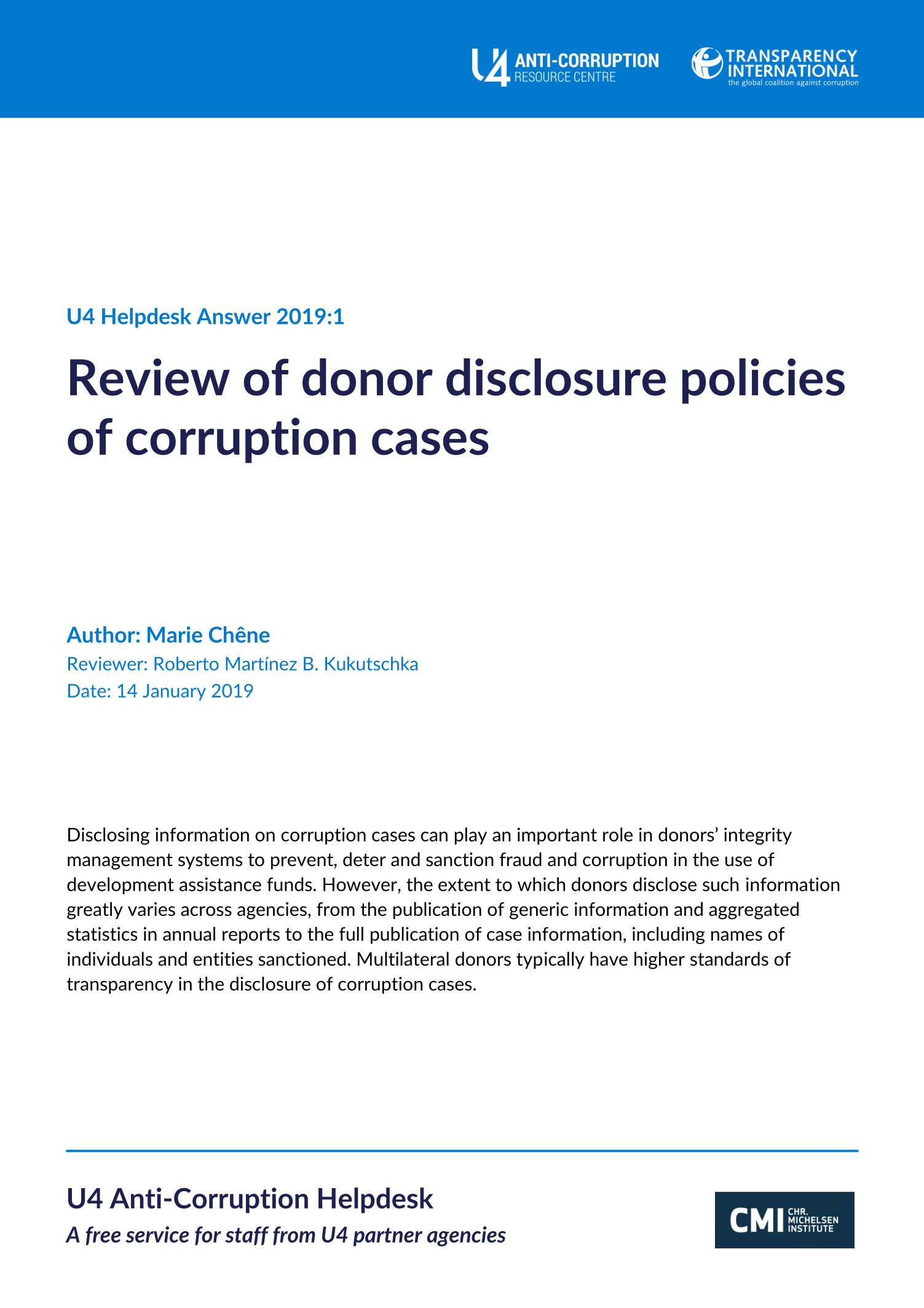Main points
- National laws and policies on access to information, data protection, whistleblowing, etc. provide a legal framework that may limit the full disclosure of corruption cases by bilateral donors.
- Few bilateral donors, such as Sida and DANIDA, have made progress in recent years regarding the disclosure of corruption cases.
- Multilateral donors generally have higher standards of transparency and disclosure of corruption cases than bilateral ones.


